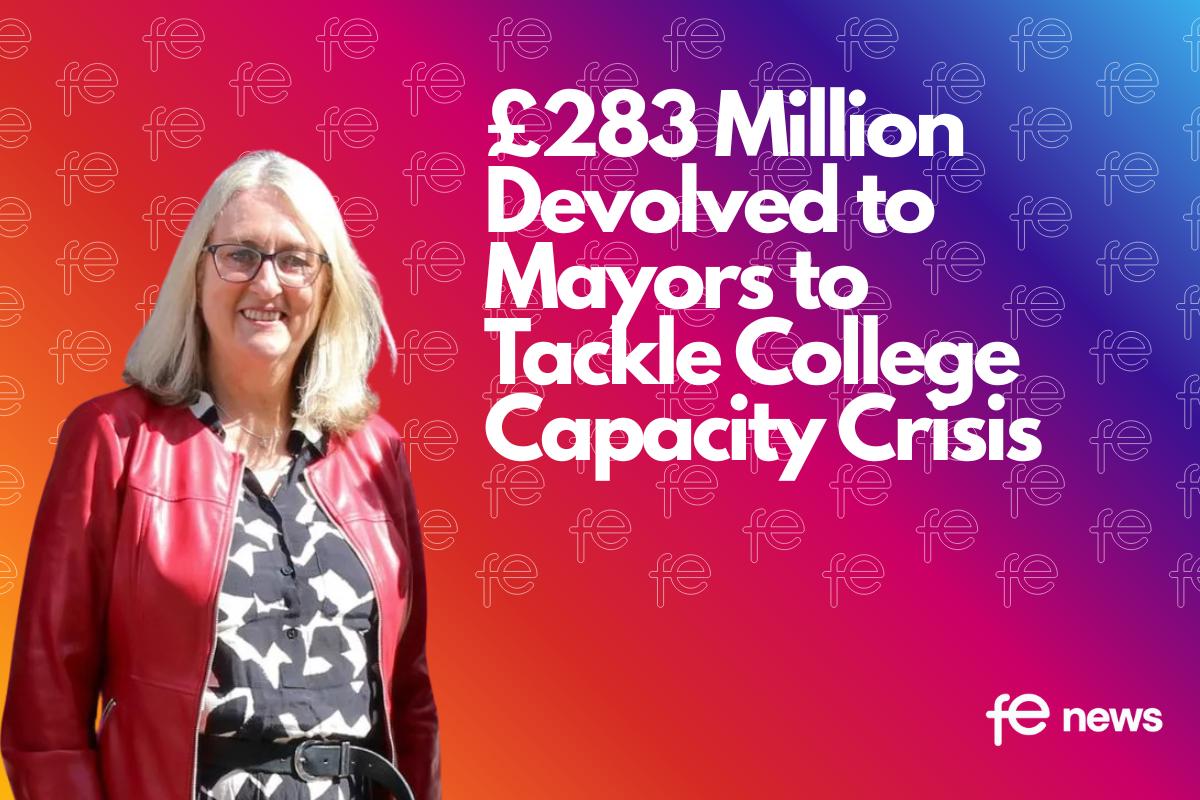National Tutoring Programme will widen access to high-quality tutoring and academic mentoring for disadvantaged students

National Tutoring Programme #NTP launches in schools
The National Tutoring Programme (NTP) is today (2 Nov) launching in schools. The NTP has been designed and developed by a collaboration of five charities – the EEF, Sutton Trust, Impetus, Nesta and Teach First – working in partnership with the Department for Education.
The NTP was established in response to clear evidence that Covid-19 is likely to widen the attainment gap between poorer pupils and their peers in English schools.
The NTP aims to support schools in providing a sustained response to the coronavirus pandemic and to provide a longer-term contribution to closing the attainment gap.
The programme for 5-16-year-olds has two parts: NTP Tuition Partners, which aims to give schools access to subsidised high-quality tuition from approved providers; and NTP Academic Mentors, which recruits graduates and qualified teachers to work full-time in schools in the most disadvantaged areas.
Separate tutoring initiatives are in place to support early years and post-16 education.
Extensive evidence shows that children can make significant progress with high-quality tutoring. The two pillars of the programme, NTP Tuition Partners and NTP Academic Mentors, will widen access to high-quality tutoring and academic mentoring for disadvantaged pupils who have disproportionately been affected by the pandemic.
The EEF will be leading the delivery of NTP Tuition Partners and has been provided with £76 million from the Department for Education to fund activity in 2020-2021.
Teach First will support the recruitment, training and placement of Academic Mentors into schools serving disadvantaged communities and has been provided with £6.4 million to fund this work. The £19k salaries of Academic Mentors will be funded by the Government.
Both pillars are funded as part of Government’s £350m allocation to tutoring, through the £1bn coronavirus catch up package.
New analysis of polling by the Sutton Trust for the NTP has highlighted the “tutoring gaps”, which the NTP aims to address:
- The Disadvantage Gap: Pupils from the least affluent families are significantly less likely to have been tutored compared to those from the most affluent (18% vs. 43%), a gap that likely widened during lockdown.
- The Regional Gap: The availability of high-quality tutoring varies widely across England, with many coldspots where tutoring is unavailable. Pupils in London are significantly more likely to have accessed tutoring (50%) than their peers outside the capital (29%).
Tuition Partners
32 organisations selected by the Education Endowment Foundation including charities, a school partnership and for-profits will deliver high-quality tutoring to disadvantaged pupils as approved Tuition Partners.
Through the Tuition Partners pillar, schools will be able to access subsidised high-quality tutoring. Tutoring could cost as little as £50 per pupil for a block of 15 sessions delivered in small groups of three pupils. Schools will be able to book tutoring with Tuition Partners from 10am today (02/11/2020).
Approved providers have been selected based on a rigorous assessment process conducted by the Education Endowment Foundation (EEF), an independent charity. In total, it is estimated that approximately 15,000 tutors will support the scheme.
Schools will be able to choose between different providers and a variety of models, including face-to-face and online tutoring, with NTP funding mobilising a whole range of tutors, including supply teachers, university students and trained volunteers.
Approved Tuition Partners include:
- The Brilliant Club, an award-winning national education charity focused on mobilising the PhD community to work with state schools, who will be using PhD tutors to deliver curriculum-focused tutoring as part of NTP through their new Brilliant Tutoring Programme.
- Schools Partnership Tutors, a group of schools from Suffolk, Essex, Cambridgeshire and East London offering face-to-face and online tutoring to schools across the country.
- Targeted Provision, an organisation providing tuition exclusively to pupils with Special Educational Needs and Disabilities (SEND) and social, emotional and mental health (SEMH) needs. All of their tutors are qualified teachers with a minimum 3 years’ experience supporting pupils with additional educational needs.
- The Tutor Trust, a Manchester-based charity that trains university undergraduates to provide tutoring in local schools, with proven impact on pupil outcomes.
- White Rose Maths, a Yorkshire-based company with a strong reputation for providing support, training and resources about teaching mathematics in primary and secondary schools.
Tens of thousands of pupils are likely to be enrolled in the first six weeks, with provision increasing further after Christmas. As tutoring capacity across the country grows, schools serving the most disadvantaged communities will be prioritised.
Academic Mentors
The first 188 Academic Mentors, recruited and trained by education charity Teach First, will also be starting in schools as part of their mission to build a fair education for all. Mentors will support teachers by providing intensive academic support to the pupils most in need.
The second pillar of the NTP, The Academic Mentor Programme, also launches today, with the first wave of 188 Academic Mentors starting in schools serving disadvantaged communities, against a target of 150.
These mentors will be deployed directly by teachers and school leaders to provide additional intensive academic support to the pupils most in need, to help them make faster progress, particularly important after so many have missed half a year in school.
Academic Mentors have been recruited, trained, placed and supported by the education charity Teach First. They will be employed directly by the school as full-time members of staff, with their salaries paid by the Department of Education.
In total, Teach First will recruit and train 1,000 Academic Mentors, with the further cohorts starting in schools in January and February.
Sector Response
 Education Secretary Gavin Williamson said:
Education Secretary Gavin Williamson said:
“We need to do everything in our power to help pupils make up for any lost time, especially those from disadvantaged backgrounds.
“Tutoring provides tailored teaching support to individual pupils, and can be transformational in boosting academic progress.
“This is about levelling up those opportunities across the country and I urge schools to make the most of this subsidised scheme.”
![]() Robbie Coleman, Director of the secretariat of the National Tutoring Programme, said:
Robbie Coleman, Director of the secretariat of the National Tutoring Programme, said:
“The National Tutoring Programme has one simple aim – to support teachers and schools to support their pupils who have missed out the most as a result of school closures. We’re pleased to welcome our new Tuition Partners who will make tutoring accessible to disadvantaged pupils who need it most.
“The National Tutoring Programme is a tool for teachers. We hope that by providing high-quality, cost effective tutoring to disadvantaged pupils the NTP will make a difference to those who need it most across the country.”
 James Grant, Co-Founder of MyTutor, said:
James Grant, Co-Founder of MyTutor, said:
“We’re delighted to have been selected as an approved Tuition Partner to help disadvantaged students catch up as part of the National Tutoring Programme. At MyTutor, we’re fiercely dedicated to delivering life-changing online tuition that helps students from less privileged backgrounds secure better exam results.
“Being part of the programme will mean we are able to provide much-needed support to over 600 secondary schools and tens of thousands of students, helping them to catch up on lost learning amid the ongoing disruption to school life caused by COVID-19.
“As talented undergraduates with recent exam experience, our 15,000+ trained tutors are uniquely placed to build up students’ confidence, complement the incredible work going on in classrooms up and down the country, and develop positive, nurturing relationships with students.
“This represents a fantastic opportunity to build on the success of the Education Endowment Foundation’s Online Tutoring Pilot, which we participated in over the summer, and which found that 9 in 10 students felt more confident in their schoolwork following tuition. We can’t wait to start making a difference to those who need it most.”
 Sir Peter Lampl, founder and chairman of the Sutton Trust and chairman of the Education Endowment Foundation, said:
Sir Peter Lampl, founder and chairman of the Sutton Trust and chairman of the Education Endowment Foundation, said:
“Today marks an important day for the National Tutoring Programme.
“I am delighted that schools will have access to tutoring from so many high-quality organisations.
“For too long, low income pupils have not been able to afford tutoring. This is an important step in enabling them to access it.”
 Russell Hobby, Chief Executive of Teach First said:
Russell Hobby, Chief Executive of Teach First said:
“We’re thrilled to see the first wave of Academic Mentors start in their schools today. Teachers are already working incredibly hard to restore pupil learning after such a challenging period outside the classroom. Trained mentors will provide much needed back up.
“We look forward to working closely with schools serving disadvantaged communities across the country to ensure that young peoples’ futures are not further blighted by this pandemic.”
 Professor Becky Francis, Chief Executive of the Education Endowment Foundation (EEF) said:
Professor Becky Francis, Chief Executive of the Education Endowment Foundation (EEF) said:
“We’re delighted to be able to fund this diverse range of NTP Tuition Partners. Providers have been awarded funding based on the quality of their tutoring model, their evidence-based approach and their ability to support a large number of schools.
“By harnessing tutoring capacity within the education sector – from undergraduates and trained volunteers to qualified specialist educators – we’ll be able to build supply across the country to support tens of thousands of disadvantaged pupils.
“Tutoring can only be one part of the response to the severe impact of the pandemic on learning. But it’s an approach supported by an extensive evidence base, which can provide an important boost during a difficult year.”
Richard Evans, CEO of The Profs said:
“Professional tuition is highly effective at both driving educational outcomes and motivating students to aspire to more; why else would 25% of parents around the UK invest in private tutoring? It’s time to acknowledge that the tutoring industry has been behind the scenes for quite some time now, contributing to student attainment and outcomes in a big way.
“We are only trumpeting our achievements now because without it, hundreds of thousands of disadvantaged children risk being given inadequate support. Teams of professional and experienced tutors are willing to dedicate large parts of their working lives, at substantially discounted rates, to supporting these children in need through the National Tutoring Programme. We always have been supporting the education sector and, through government funding, this is our opportunity to target that support at the most disadvantaged and most deserving through the National Tutoring Programme.
“The modern tutoring industry insists on experienced, professional tutors. Many tutors are existing or ex-teachers. Many commentators have been surprised at how far ahead of schools we are in deploying technology into our classes. All tutoring companies I work with have made the conscious decision to stop working with student tutors – we found them too unreliable, unprofessional and least likely to be available when their students needed them to most because their exams were at the same time. Stressed university students paired with stressed A level students and concerned parents was a powder keg – one best left avoided in our experience.
“It concerns me that the Education Endowment Foundation, who are charged with overseeing the National Tutoring Programme appear to be prioritising organisations that rely on unpaid or cheap student tutors over the 250,000 professional tutors who are readily available.”
A small number of Tuition Partners are expected to launch after the initial 2nd November date. Amounts of funding granted to approved Tuition Partners are being paid on completion of delivery milestones and are dependent on demand from schools.
Regional support
The National Tuition Programme will support schools in all regions of England. Within the NTP Tuition Partners pillar, additional places have been allocated to regions with the largest numbers of disadvantaged pupils and in regions where access to tutoring has historically been lower.
Additional provision has also been targeted at the Department for Education’s 12 Opportunity Areas: Blackpool, Derby, Norwich, Oldham, North Yorkshire Coast, West Somerset, Bradford, Doncaster, Fenland and East Cambridgeshire, Hastings, Ipswich and Stoke-on-Trent.
Provider type and selection process
All organisations were selected on the basis of the same assessment criteria and selection process. In total, 393 applications were received from organisations seeking to become approved providers.
21 Tuition Partners are for-profit providers. 11 organisations announced today are not-for-profit providers. This split is reflective of the applications we received to the round, with 62% received for-profit providers and 38% from not-for-profit providers.
Sutton Trust polling Methodology: New analysis of the polling of pupils in this report. Ipsos MORI surveyed 1,438 school children aged 11-16 in schools in England between 27th Jan-23rd Mar 2020. Surveys were conducted online. Data is weighted to be representative of the school population.











Responses